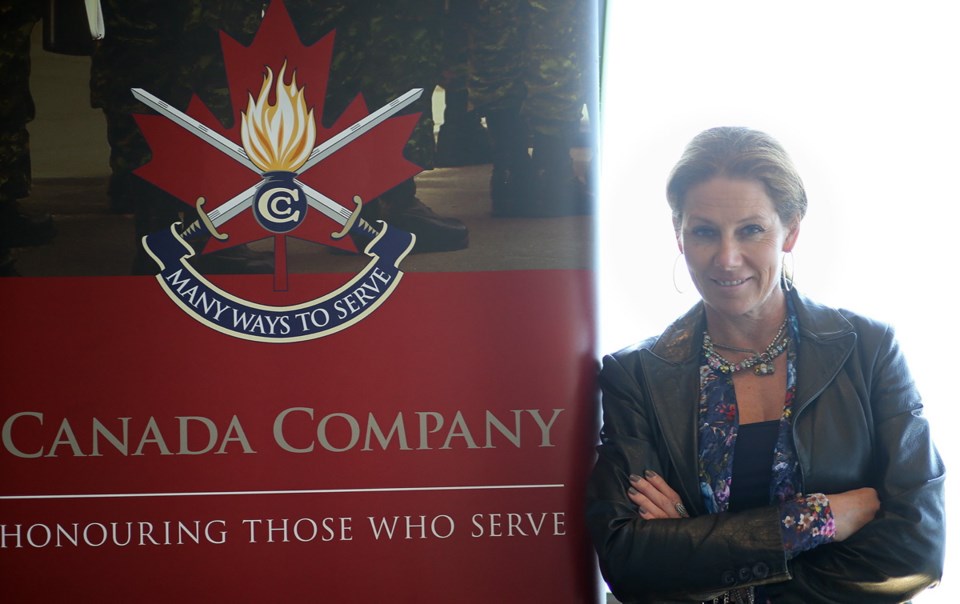Angela Mondou was 27 years old when she was given the job to move a United Nations peacekeeping contingent into the former Yugoslavia during the conflict.
The Canadian air force captain had 10 days to come up with a strategy with her reconnaissance team to relocate the equivalent of a small city across five countries into a bombed-out war zone. That meant moving regiments and thousands of pounds of equipment.
It was a “huge responsibility,” Mondou said this week in Victoria. “When I came out of that experience, I didn’t think there was anything I couldn’t do.”
And that’s what led Mondou to Canada Company.
She is now president of the non-profit company, which has a military employment transition program to help military members and veterans move into civilian life.
Its two-day CareerConnect conference in Esquimalt attracted more than 100 military and veterans and 24 employers.
Military members and vets illustrated their adherence to discipline by arriving extra-early to line up for the event on its first day.
The organization’s aim is to showcase the training, skills and experience of members and to educate employers about this pool of professional talent.
Mondou points out that military personnel are given responsibilities early on. “It forces you to grow up really fast,” she said.
Mondou had 78 people working for her in her first job at age 22.
Accountability is “huge” in the forces, she said.
Those responsibilities sharpened the “level of belief in yourself. You tested your abilities. You were put in very difficult positions, huge amounts of stress, tight timelines. And learned organizational skills, leadership skills,” Mondou said.
Mondou’s civilian experience includes global marketing for technology companies.
The transition program is gathering steam, with more than 130 employers signed up and trained as official partners. It’s online at canadacompany.ca.
This military transition program is a self-directed online tool. It offers a buddy program, webinars and volunteer human resources professionals ready to give advice and help.
So far, about 4,000 members and hundreds of companies have signed up. Participants are ready to work and have received honourable discharges, Mondou said.
Member experience can include trades, aerospace, transportation, financial management and logistics. A former paratrooper now working as a professional coach was at the conference, an illustration of one possible career path.
Ages of potential employees range widely, depending on when they leave the military. Some may serve three years, while others may leave with full pensions after a long career. Many in the transition program are in their mid-30s, ready for a second career, she said.
Calgary’s Rose Belke, human resources talent scout for GE Canada, was at the conference and said the company has had “great success” placing former military personnel in the oil and gas sector.
She said some of the recent hires include pipeline inspection and field service technicians.
“What I like is the attitude. They’ll do whatever you ask them to do. They are highly skilled with great leadership skills.”
Employers included Johanna Hreich, a human-resources adviser for the airport division of G4S Integrated Security Solutions, which handles airport security screening at 21 airports in B.C. and the Yukon.
Every year, Hreich typically hires between five and 10 former military members.
They arrive already trained in management, she said.
They can handle busy, stressful situations while coping with high numbers of travellers.
Skills include attention to detail, report writing and the ability to delegate and meet targets and deadlines, she said.



